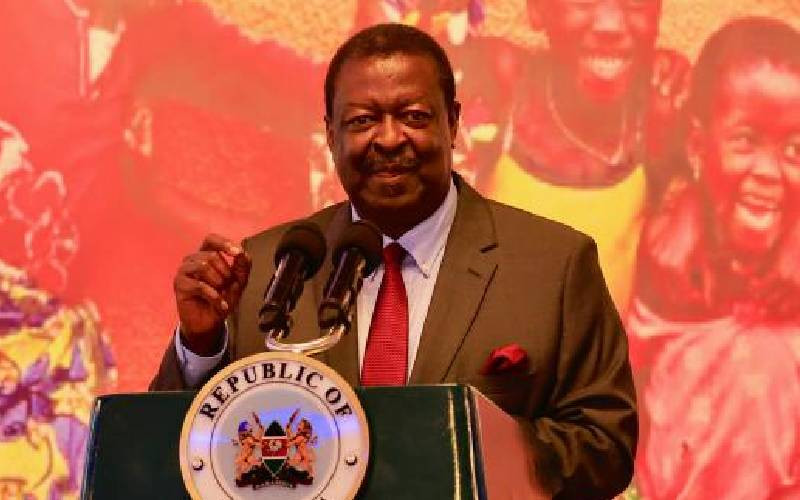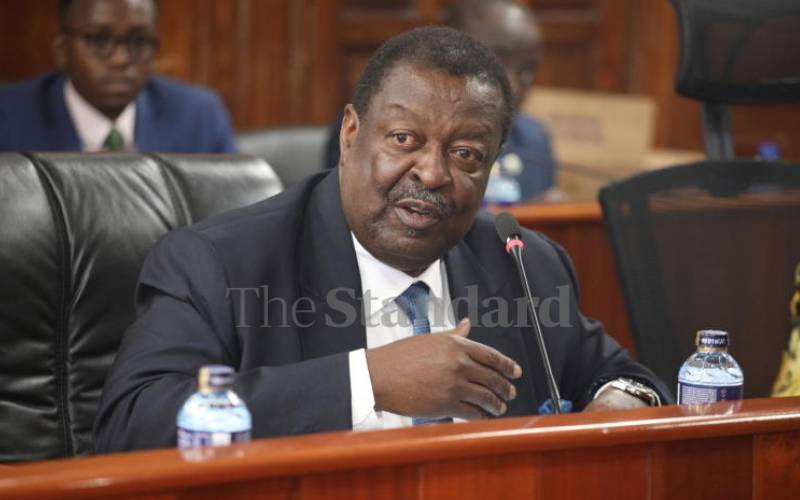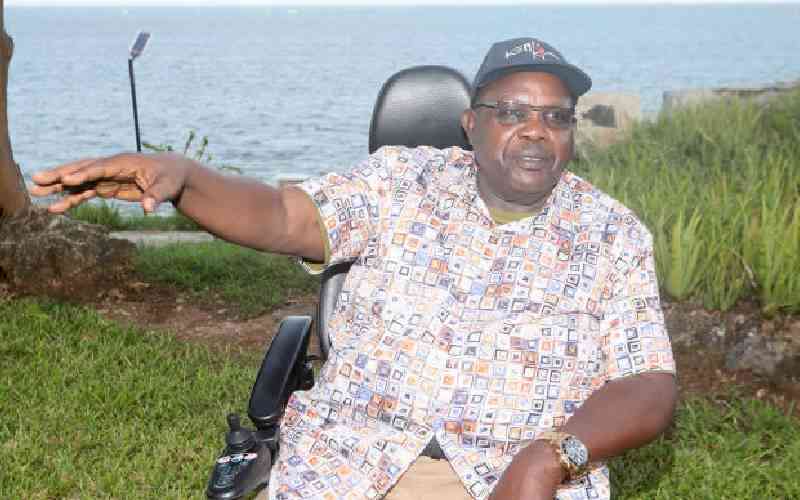In his research on the journal ‘Transition and Black Orpheus (1986)’, Peter Benson reports how the late Ali Mazrui suggested that Kenyans rally behind the Mau Mau to cement a sense of nationhood. That was daring intellectualism from a matchless political thinker. First is because Kenya’s independence came in 1963, six years after the end of the land-centred Kikuyu movement in 1957.
Second is that Mazrui did not foresee the pitfalls of such myth-making in a multi-ethnic Third World state, namely the danger of ethnic entitlement. That cancer, I think, is what much of the writing from Central Kenya has always exacerbated, and its result is corruption which currently inundates Kenya.
Caroline Elkins’ ‘Imperial Reckoning (2005)’ is a book I constantly read with deep pain. Indeed, I sometimes feel some author’s tendency to moan about British atrocities in certain parts of Kikuyuland is justified. My only problem is how our dream of nationhood is supposed to be realised against such a backdrop of localised tears.
To be fair to these authors, it is possible that the overall prominence of Mau Mau literature should be viewed against other communities’ failure to fictionalise their peoples’ initial brutal encounters with the white man.
Did not do justice
Take Kisiiland for instance. I barely know of a Kenyan community that was as traumatised by colonisation as the Abagusii. Scholars show how this small community was hounded from modern-day Yimbo by the Luo, all the way to Kano, vomited out of the plains by a combination of Luo and Nandi onslaught, only to find itself hemmed in on all sides by the Luo, the Maasai, and the Kipsigis.
The final arrival of the coloniser in ‘Bosongo’ (so called because of the ‘Busungu’ white men who quickly built an administrative station in what we today know as Kisii Town), and the brutal slaughter of the Abagusii by the coloniser is a theme that eludes all Kisii writers.
Some of them still think that drinking and urinating in Nairobi’s pubs at night while you attribute it to others is a great idea. There is no epic Luhyia novel centred on the tragic Chetambe War of 1895. HR ole Kulet did not do justice to colonial land con art which defrauded the Maasai in the name of ‘agreements’.
Yvonne Owuor’s uncles are my Kabar clan in Kano, just near the railway line. And so it’s unlikely that the Luo writer is unaware of how the building of the railway line in the very early 1900s displaced her uncles from modern day Miwani, Oroba, and Kibigori – an atrocity which forms a subtle background to the recent Nandi-Luo skirmishes in Kibigori – and scattered the Kabar clan as far south as Kadem in Migori County. Yvonne’s ironic joy is in fictionalising Rwandans displaced by the 1994 genocide (‘Weight of Whispers’ (2003)).
Follows the herd
No Kalenjin author has ever captured in sizzling prose the beheading of Koitalel by the colonial Meinertzhagen in 1905, the eventual banishment of the Nandi Orkoiyot’s Talai clan to Lambwe Valley in Homa Bay County in 1935, the clan’s painful return to Kericho in 1962, and the Talai people’s landlessness in today’s Kenya. No Taita novel which documents the biting land problem inspired there by the coloniser and all successive Kenyan governments, or a Somali text of the same mould.
Perhaps such lapses are the reason other communities’ literature in regards to colonial atrocities compare very badly with conservative Kikuyu writing. And it impedes nationhood. If you asked me what Ngugi wa Thiongo’s contribution to Kenyan statehood through literature is, I would tell you straight away that it is his use of acidic literature to cement the lie that Kenya’s independence was won in the forest through actual combat.
The trend was imbibed by nearly all Kikuyu authors. Its most overt peddler is the Kwani? establishment, a group I still consider being nothing more than Jomo Kenyatta’s old Muigwithania. I know the journal is presided over by a midget-minded tribal jingo with a Masters in Ethnic Journalism because, in Kwani? 05 Part One (2008), 20 out of 100 photographs depict arrow-carrying men meting out violence in the Rift Valley, supported by over 10 photographs of stone-and-hammer-carrying Kenyans. There are only three tame photographs on Kibera. Prof Ken Kamoche’s True Warriors (2012) is a book whose inter-textual reading confirms that even the African intellectual follows the herd.
No. I can never defend Luo political naiveté. I’ve often laughed at it with resounding echoes. Yet what those echoes cannot dim is the sloppy logic which Koigi Wamwere’s Negative Ethnicity (2008) and Binyavanga’s autobiography (2011) continue to feed the Kikuyu. It never occurs to the two writers that asserting how “the 2007 election was a 41 against 1 affair” – as both do – is the most potent evidence that the 2007 election was stolen (41 cannot lose to 1; and those who simplify the 2007 tragedy into a Kikuyu-Luo affair tend to downplay certain ugly realities which the African continent still has to contend with).
My main worry is that the above use of Kenyan literature as a tool for ethnic hatred does not happen in a vacuum. Every Jamhuri Day, the pictures I see on national media are the Mau Mau being hounded by colonial soldiers. I’ve seen neither a trade union march, nor the Lancaster Conference group alighting from a plane – much less a picture of Mekatilili wa Menza. The tacit implication is stark: only the Mau Mau brought Kenya’s independence (a lie that trembles between a crocodile and a hippo).
Stay informed. Subscribe to our newsletter
It’s an interesting logic which presents serious challenges to the fight against corruption. One is that Kenya isn’t for all Kenyans. Two is that these ‘foreigners’ need not comment when ‘real citizens’ swim in corruption. That, at least, is the signal I’ve gleaned from the body language of corruption suspects in recent times, a piece of ethnic psychology earlier on confirmed in 2004 when a lady convicted for misappropriating Sh27 million of Aids victims’ money was coldly pardoned by a sitting president.
It’s telling that David Munyakei – in The True Story of David Munyakei (2008) – is gladly honoured for whistle-blowing the Goldenberg Scandal, while there are no attempts to appreciate John Githongo’s bursting of Anglo-Leasing. Does it have anything to do with the regimes that presided over the scams?
What the Kenyan state consistently ignores is the reality that you will never fell corruption before you do nationhood in a state where deeply primitive writers drive a wedge between ‘owners’ and ‘foreigners.’ The epic contest then becomes: “I grab because I own the country,” against, “I grab because it will be grabbed anyway.” That’s what the late Mazrui missed.
- The writer is an author at africanwriter.com
 The Standard Group Plc is a
multi-media organization with investments in media platforms spanning newspaper
print operations, television, radio broadcasting, digital and online services. The
Standard Group is recognized as a leading multi-media house in Kenya with a key
influence in matters of national and international interest.
The Standard Group Plc is a
multi-media organization with investments in media platforms spanning newspaper
print operations, television, radio broadcasting, digital and online services. The
Standard Group is recognized as a leading multi-media house in Kenya with a key
influence in matters of national and international interest.
 The Standard Group Plc is a
multi-media organization with investments in media platforms spanning newspaper
print operations, television, radio broadcasting, digital and online services. The
Standard Group is recognized as a leading multi-media house in Kenya with a key
influence in matters of national and international interest.
The Standard Group Plc is a
multi-media organization with investments in media platforms spanning newspaper
print operations, television, radio broadcasting, digital and online services. The
Standard Group is recognized as a leading multi-media house in Kenya with a key
influence in matters of national and international interest.








